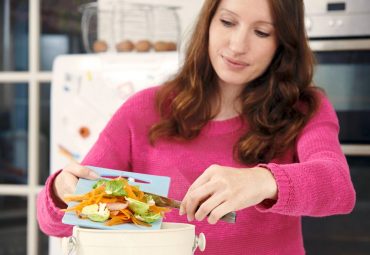
It might not feel like you alone can have an impact on the environment, but over time, small lifestyle changes can make a substantial difference.
Need some ideas to get started? Draw inspiration from the collective efforts of one California olive company working to run operations in an eco-friendly way.
“Our employees are vital to our zero waste efforts,” says Dennis Leikam, environmental manager at Musco Family Olive Co. “Through monthly sustainability topics and a compost program, they’re encouraged to reduce not only our corporate environmental impact, but also their personal impact away from work.”
Over 75 percent of residential waste is recyclable, but most people only recycle 30 percent, according to the Environmental Protection Agency. While it may be unrealistic to produce zero waste at home, you can get closer to that goal.
Such commitment to sustainability is achievable in your own home. Here are some simple actions you can take.
Buy the Right Stuff
Musco has an ethical sourcing program to ensure that every part of the olive production process meets sustainability goals. Do your own ethical sourcing by:
- Buying local
- Buying products with minimal, recyclable packaging
- Reducing your use of disposable items
- Choosing products from companies with a commitment to sustainability
Drive Less and Bike More
In an effort to reduce greenhouse gas emissions at its facilities by 5 percent, Musco is tracking emissions through Carbon Disclosure Project, the leading nonprofit working to reduce greenhouse gas emissions. You can lower your carbon footprint by consolidating car trips and walking or riding your bike to work and on errands.
Conserve Water
In the last 10 years, Musco has recycled almost 1.5 billion gallons of water onsite in a closed-loop system. The company even grows a special grass that pulls salt from the soil, is harvested and becomes a tasty supplement for local cattle. Here are ways you too can conserve water:
- Turn off the tap when you brush your teeth.
- Use the dishwasher. Unless your dishwasher is more than a decade old, it uses less water than washing by hand. Really.
- Put a brick in your tank to get a low-flow effect without the cost of a new toilet.
- Add aerators to faucets. They cost less than $10 and the accumulated water savings is substantial.
- Limit watering outdoors to the coolest times of day, use a moisture sensor and landscape with native, drought-resistant plants.
Bring Your Own Bag
Remembering to bring your own bags to the supermarket is hard at first but is a great habit. Keep market bags in the back of your car and get a foldable tote bag to store in your purse.
Feed the Soil
Take advantage of municipal compost programs. Most allow whole pizza boxes, paper plates, plate scraps and bones in the green bin — all of which are not allowed in a backyard bin. Or, get yourself a worm box and compost small food scraps that will help your garden grow. You can also toss veggie scraps into a freezer bag until you have enough to make veggie broth.
Remember: Every small step makes a difference.
To learn more about sustainability leadership, visit www.olives.com.






















